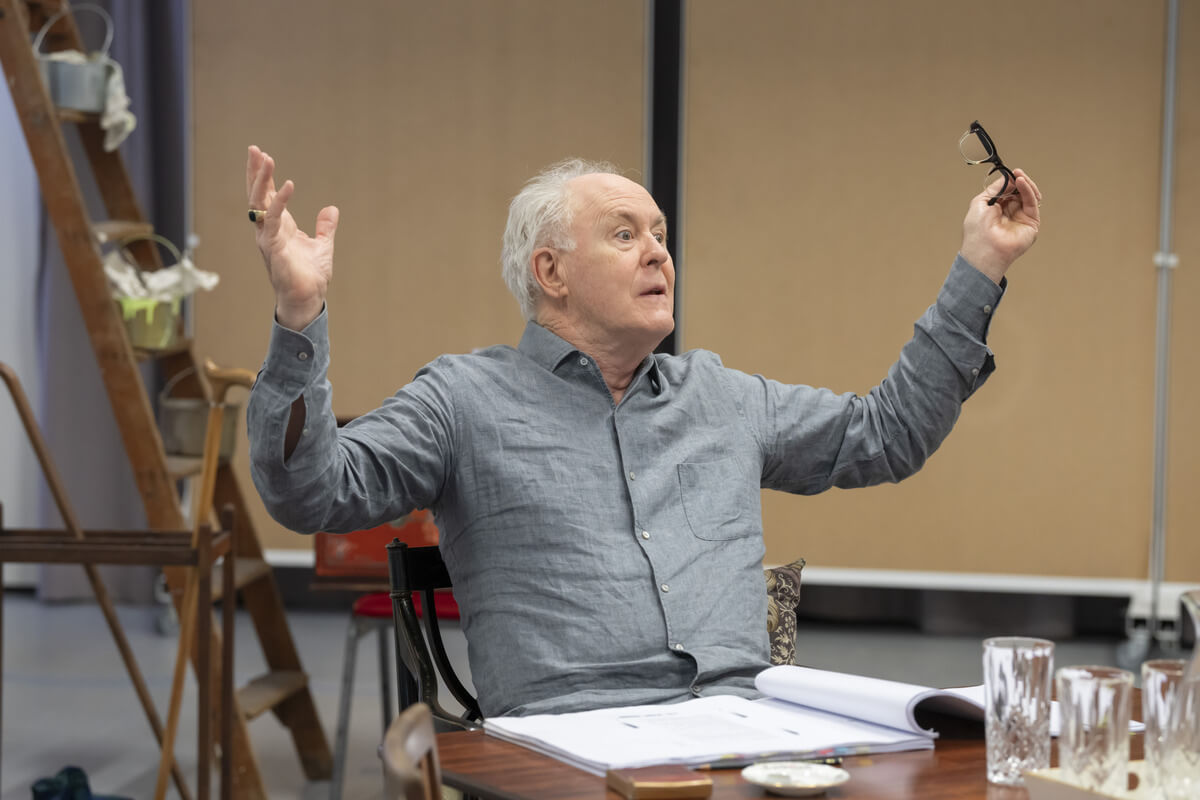Hiddleston’s Robert, a successful publisher, is joined in this three-hander by Zawe Ashton (fresh from her success as Claire in the BBC’s Wanderlust), who plays his gallery-owning wife Emma (the role delivered to critical acclaim back in 2011 on this same stage by Kristin Scott Thomas).
Playing Jerry (Robert’s literary agent friend - who is engaged in a 7 year love affair with Emma) is Charlie Cox who, since his 2008 West End debut in another Pinter play (The Collection), seems also to have become ubiquitous on both our small and large screens.
As with much of Pinter’s work, not a lot appears to be happening, but a great deal is going on. Betrayal is no exception. A party. A man and a woman sit a discrete distance apart. They are chatting. There is a level of familiarity, even furtiveness. There is history. There is caution... there’s a very great deal of ‘not a lot is happening’, going on.
Gradually, as the evening regresses — Pinter’s 1978 work is a masterclass in reverse chronology — we learn how Robert, Emma and Jerry came to know each other. We’re made privy to details of their intimacies along with the impracticalities of maintaining a Kilburn love nest. Maleness is deconstructed through the bonding ritual of ‘squash followed by lunch paid for by the loser’. We tentatively re-visit Venetian holidays spent reading Yeats, where pent-up frustration and polite anxiety is unfairly directed towards Italian waiters.
As our three journeyers traverse Pinter’s love-trap, controlling and suppressing their emotions as they go, familial familiarities and the human condition are wryly observed with a mixture of absolute honesty and under-your-nose deceit. With its artsy backdrop of middle class, literary intelligentsia, the play is nowadays generally acknowledged to have been based largely on the playwright’s affair with Joan Bakewell. The three beautiful people performing on the spartan, trip-wire triggered, travelator stage, remind us what it’s like to be in the prime of life, at the height of one’s powers and yet still be able to conjure situations for ourselves, which whilst thrilling, carry a constant threat of cataclysmic implosion.

 Tom Hiddleston in Betrayal at the Harold Pinter Theatre
Tom Hiddleston in Betrayal at the Harold Pinter Theatre



 This week marks International Woman’s Day and there was no better way to celebrate it than watching six of history’s most famous wives reclaiming their stories live on stage.
This week marks International Woman’s Day and there was no better way to celebrate it than watching six of history’s most famous wives reclaiming their stories live on stage.